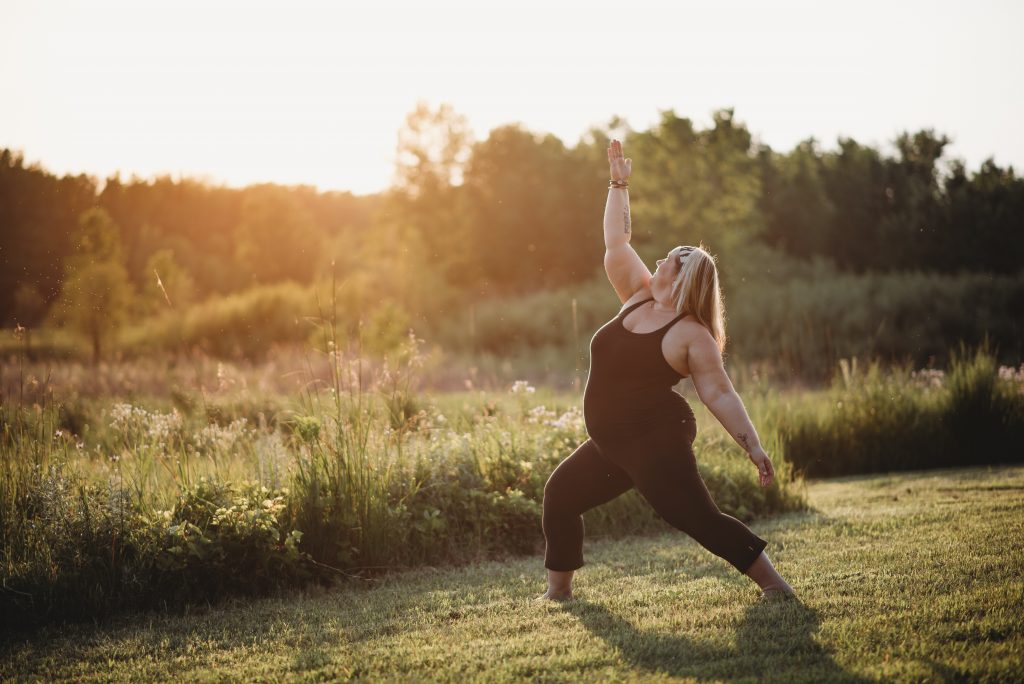
Yoga is something that I have done since college (if you promise not to do math, I’ll simply say I’ve been doing yoga for 20+ years).
There was a period of time when I considered going through the teacher training program and becoming a yoga instructor but never had the time to get it done. Then the pandemic of 2020 hit, and was the perfect time to get my 200 hour YTT, as well as a trauma-informed yoga teacher certification, and yoga therapy certification.
Why, you ask?!
You don’t understand yoga’s true, full potential until you’ve gone through a life-changing physical trauma. Knowing what I know now, I have a deeper love and appreciate for yoga; a greater understanding of it’s powerful healing benefits.
In February of 2014 I slipped on a patch of black ice on an inclined driveway. I had zero warning as my feet went up into the air and my skull made full impact with the frozen asphalt. Amazingly, I walked away with my life — I am still in awe at the incredible resilience of one’s skull and how much of an impact it can actually take.
What I did sustain in the fall included: a severe concussion (later referred to as a traumatic brain injury, or TBI for short), major whiplash, c4/c5 damage in my neck, torn muscles in my neck, throat, abdomen, and chest, and a dislocated sternum.
Sounds like a load of fun, huh?
As we began addressing the physical injuries, I was unaware of the journey I was starting inside my head. A traumatic brain injury (TBI) is a very complicated and invisible injury, and one that many professionals (as well as friends and family) just don’t quite understand. I was frustrated when doctors wouldn’t listen to me, or would simply tell me that I will feel better in a few weeks. Every few weeks would start a new cycle of pain, grief, and anxiety.
After about 15 months of feeling pained, isolated, depressed, and anxious I reached out to a yoga instructor friend of mine.
Because of the dislocated sternum, I wasn’t able to lift my hands much higher than my shoulder and couldn’t take a full, deep breath. Because of the TBI I suffered from dizzy, balance, and neck mobility issues. I also noticed I would drag my right foot and my right arm did not move in motion with my walk — both of which are a neurological problem.
My dear friend helped me come up with FIVE yoga poses that I could do without feeling like I would fall over or causing me pain and discomfort.
Five poses. That was it.
They included: cat-cow pose, puppy dog (child’s) pose, tree pose (with the help of a chair for balance), eagle arm pose, and side twists while lying down.
After a few days of doing these five poses for about 10-15 minutes, I started noticing a difference. I was able to breathe deeper than I had since the accident, my flexibility was coming back (slowly), and my dizzy and balance issues were starting to bother me less. My range of motion was growing every single time I did yoga.
I gradually added in some of my favorite poses as I felt ready, for a single breath. I would go into down-dog pose and warrior pose just to see if I could. I would hold it for one breath, and then two. I eventually got brave enough to try side angel, which is my ultimate favorite post (and the one pictured above). I was thrilled that I was able to do it, at least with a block to assist me.
Now that I am just over seven years out from my accident, I am an advocate for TBI awareness, I am teaching yoga to a greater audience. I not only want to raise awareness, I want to help other survivors. Which brings me back to my point about teacher training. While you do not need an actual license/certificate to teach yoga, I wanted to go through proper training so that I know how to keep my students safe, while helping survivors find some comfort and peace in yoga, the way that I did.
Yoga for every BODY.
EVERYONE can do yoga, even those who think you have to be “flexible” to do it. Yoga is an individual activity, one in which you only do what you can. It can be modified to fit your injury, and some poses can even be done from a hospital bed. There are amazing benefits to doing yoga, and I hope that my experience can help another survivor decide to give it a try!
Join me for my weekly accessible yoga practice for only $10 a month through my Patreon membership site. To get a taste of my yoga style, CLICK HERE for a 20-minute Brain Yoga practice.
Namaste,
Amy


 Hello and Seasons Greetings!!
Hello and Seasons Greetings!!